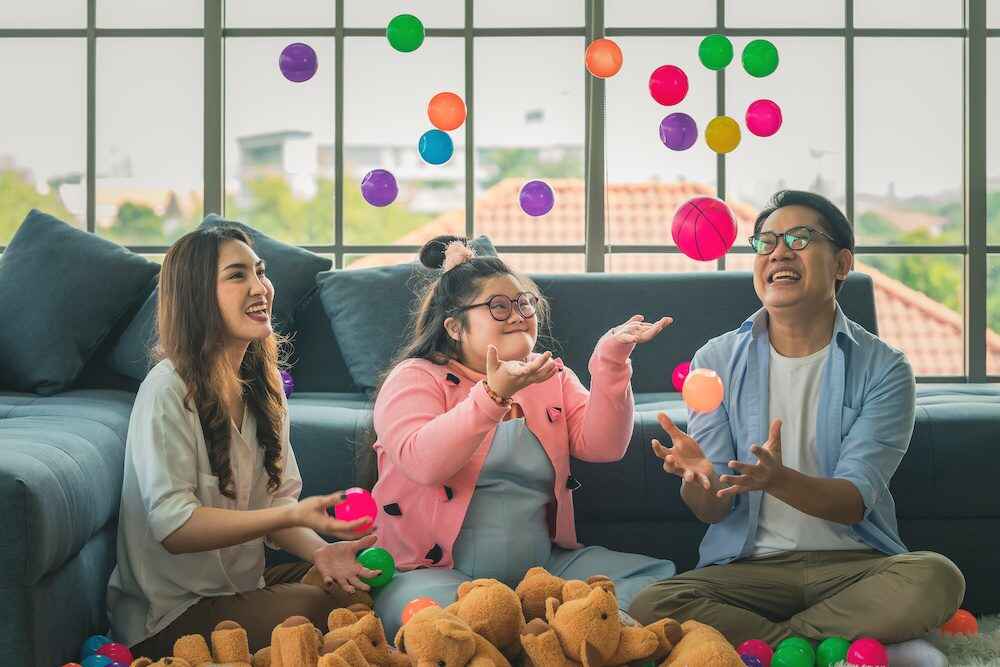
April Is Autism Awareness Month
Autism spectrum disorder, or ASD, is described by the Centers for Disease Control and Prevention (CDC) as a developmental disability that can cause significant social, communication, and behavioral challenges. Although autism is most often identified in childhood, some adults might receive a “late diagnosis” of ASD.
Autism is prevalent, with approximately one of every 54 children diagnosed each year. Autism also does not discriminate, affecting all ethnic and socioeconomic groups. People with autism sometimes don’t take social cues from other people, and that’s okay! Education is key to understanding and helping those who live with ASD.
What Does “Spectrum” Mean?
Autism encompasses a spectrum of behaviors, including differences in how people with ASD communicate, learn, behave, and socialize. Every person is unique and valid in their communication style — within the autism spectrum, those communication styles can be quite different. A “spectrum” simply means that there is a wide variety in both the nature and the severity of behaviors and learning challenges symptomatic of autism.
According to the National Institute on Mental Health, these behaviors include:
- Sensitivity to light, sounds, smells, temperature, or clothing/textures
- Lack of eye contact or little/inconsistent eye contact
- Lack of listening or slow response to hearing one’s name called
- Difficulty with verbal communication or conversation
- Talking at length without realizing that no one is listening
- Refusing to give others a chance to respond
- Facial expressions, reactions, or movements that don’t match what is said
- Difficulty understanding another’s point of view
- Being unable to predict societal norms or actions
- Lasting intense interest in specific details, numbers, or subjects
- Odd or erratic behaviors, including stimming (regulation of the body through repeated movement or sound)
- Emotional outbursts due to changes in routine or activity
- Lack of significant milestones by a certain age
The severity of these symptoms varies from person to person. Some people with ASD can learn and remember a significant amount of detail, retaining that knowledge for work or school. Others with ASD are strong visual and auditory learners, functioning with almost no help in school. Many with ASD excel in math, science, music, and art. Although some people with ASD have difficulty in school or the workplace, others don’t find out they have autism until adulthood, as their symptoms were too hard to detect.
Autism at Any Age
Even though ASD is referred to as a developmental disorder, it can be discovered in adults. According to the CDC, as of 2017, an estimated 5.4 million adults in the United States have ASD–or about one of every 45 adults.
Because of ASD’s wide spectrum of behaviors, one may not even notice that someone close to them has autism. ASD is a lifelong condition, which means that people who discover they are on the spectrum have had it their whole lives. Children with ASD can often be diagnosed at the age of two or three, but no earlier.
What Causes Autism?
Scientists still do not know the exact cause of ASD, although the most critical times for developing ASD might be before, during, or right after birth. Autism is four times more common in boys than in girls, although the reasons are unknown.
Scientists have been able to prove that genetics hold some responsibility for ASD. In families with one child diagnosed with ASD, other siblings will have a significantly higher chance of being born with ASD than children in families without another child on the autism spectrum. Children born to older parents also have a higher risk of ASD.
Find Support Today
Early intervention in children can be extremely crucial to their growth and development. Early intervention can help set routines, teach social skills, and develop bonds at an early age. When a diagnosis and behavioral interventions occur early, individuals with ASD have increased outcomes for successfully managing their symptoms throughout their lives.
Autism’s prevalence in today’s society is ever-growing. If you or a loved one are diagnosed with ASD and you’re struggling, we can help. ASD can be minor, but it also can be very stressful for families. What is important to remember is that all behavior is communication, even if it’s hard to tell what they are communicating.
Autism Awareness Month is the perfect time to learn about ASD and the many resources available for guidance and support, especially if you or your loved one also struggles with addiction. We are here to help people with ASD and their families heal together.
For support with autism and addiction, look for recovery programs that understand ASD and can identify patterns or routines that keep you in the cycle of addiction. At RECO Intensive, we offer safe and structured programs for help with your addiction, and we can coach you through dealing with you or your loved one’s ASD. Our group therapies led by specialized staff can show you new ways to cope with your addiction and find peace in recovery. Changing routines can be a tremendous challenge for people with ASD, and it’s okay not to know what to do. Reach out to your doctor, specialists, and local programs for guidance. RECO Intensive can help, too. With our extensive outpatient program, we can even help you if you’re the primary caretaker of someone with ASD. RECO Intensive also offers family therapy that can be very beneficial to a family feeling the strain of addiction and ASD complications. To learn more and get help, call RECO Intensive today at (561) 464-6533.